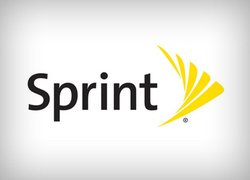As the new school year begins across the country, 180,000 low-income high school students will receive the equipment and connectivity they need to complete their schoolwork from home as part of the 1Million Project. The Sprint Foundation, with support from Sprint (NYSE:S), announced that the first year of the initiative, kicking off Aug. 15, will include more than 1,300 schools across 32 states providing 180,000 students with free devices and wireless service for up to four years while in high school. During the course of the 5-year program, up to 1 million high schoolers who lack internet access at home will join the 1Million Project, helping to level the playing field and eliminate the “Homework Gap.”
Seventy percent of America’s high school teachers assign homework that requires online connectivity, yet more than 5 million families with school-aged students do not have internet connectivity at home.1 These students face an enormous challenge in trying to complete their homework from home, search for jobs, apply to college and financial aid, or easily access the valuable information they need to succeed in school and life.
“Sprint is uniquely positioned to help make a difference in these kids’ lives immediately and on a massive level, and that’s exactly what we’re doing,” said Sprint CEO Marcelo Claure. “In less than a year, we’ve gone from conceiving and piloting the 1Million Project to implementing it in order to help hundreds of thousands of high school students across the country this school year.”
Some of the country’s largest school districts will participate in the first year of the 1Million Project during the 2017-18 school year, including:
- New York City Department of Education (NY)
- Miami-Dade County Public Schools (FL)
- Los Angeles Unified School District (CA)
- Chicago Public Schools (IL)
- Phoenix Union High School District 210 (AZ)
- DeKalb County School District (GA)
- Baltimore City Public Schools (MD)
- Newark Public Schools (NJ)
- Charlotte-Mecklenburg Schools (NC)
- Oakland Unified School District (CA)
- Broward County Public Schools (FL)
See the full list of all participating schools and school districts, as well as images and video content.
“For today’s schoolchildren, smartphones are an essential tool for classroom performance, helping students with everything from communicating with teachers and counselors via email to conducting research for assignments and compiling reports and presentations,” said Richard Buery, deputy mayor for New York City. “As a city that lives on-the-go, the investment of 30,000 smartphone devices will be invaluable to students attending community schools and will help us achieve equity and excellence in the classroom by leveling the playing field on academic achievement. We thank Sprint for their partnership and for addressing the homework gap with the 1Million Project.”
“Not having access to the internet at home not only impacts students, but it also hinders parents’ ability to communicate with teachers and build a partnership with their child’s educators,” said Pedro Noguera, distinguished professor of Education in the Graduate School of Education and Information Sciences at UCLA and director of the Center for the Study of School Transformation. “Ultimately, not having access to the internet is an obstacle to opportunity – learning, jobs, college, and contributing to society at a high-level.”
“Homework is very difficult to do without any internet at home, so I used to spend countless hours in the computer labs at school or walking to my aunt’s house to finish all of my assignments,” said Marleni, a 1Million Project pilot participant and recent graduate from Garey High School in Pomona, California. “With my hotspot from the 1Million Project, I actually didn’t have to worry about where to go after school, and could get home at a reasonable time and do my homework in my room. I was able to finish high school with tunnel vision on the work I needed to complete, and am now moving on to college to pursue my goals.”
Each student participating in the 1Million Project will receive either a free smartphone, tablet or hotspot device and 3GB of high-speed LTE data per month for up to four years while they are in a participating high school. Unlimited data is available at 2G speeds if usage exceeds 3GB in a month. Those who receive a smartphone can use it as a hotspot.
To address the homework gap on such a large scale, Sprint piloted the program with 3,750 high school students in 10 markets in January 2017 through the end of the last school year. Lessons learned at the local level helped to prepare for the national rollout this fall. In a survey of students who participated in the pilot, 86 percent said the 1Million Project improved their attitude toward learning and school and helped them do their homework in a comfortable, convenient and safe place. Looking forward, 82 percent of students said the program positively affected the likelihood that they will persist and graduate from high school. And, 80 percent said it improved the likelihood that they will continue on to college.
Schools or districts that want to apply for the second year of the 1Million Project, which begins with the 2018-19 school year, can visit www.sprint.com/1millionproject to learn more. Applicants will receive a response by spring 2018.
“Not every student in our country has the equal opportunity to thrive and grow,” said Doug Michelman, president of the 1Million Project. “We are committed to doing our part to level the playing field for all those high school students in need who want to work hard to achieve their goals. As you might imagine, supporting 1 million students during the next five years is a significant undertaking. Sprint is donating wireless service, and the Sprint Foundation is working closely with our device suppliers, and we are very thankful for their generous contributions. But, without the help of generous donors, we can’t meet our goal to help students reach their potential, do great things and fulfill their dreams.”
During the past year, Sprint has worked with non-profit agencies, including EveryoneOn and My Brother’s Keeper Alliance, to identify cities and school districts with the greatest need and to develop academic enrichment and measurement components of the program.
Sprint is donating approximately $2.16 billion in wireless service2, technical support and staff to oversee the 1Million Project for five years. The majority of devices for the first year of the program have been donated to the Sprint Foundation by generous vendors, including TCT Mobile US (Alcatel), American Network Solutions, LLC (ANS), Franklin Wireless, LG Electronics MobileComm USA, Motorola Mobility LLC and ZTE USA Inc.
Anyone looking to support the program can visit www.sprint.com/give1mp to make a donation via credit card.2 Sprint stores continue to accept monetary and device donations.3 Used mobile devices can also be donated online. Devices will be recycled or resold with net proceeds benefiting the 1Million Project. Visit www.sprint.com/1millionproject for more information, and follow and support the program on social media by using the hashtag #1MillionProject.











